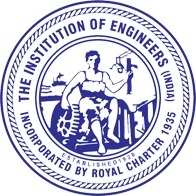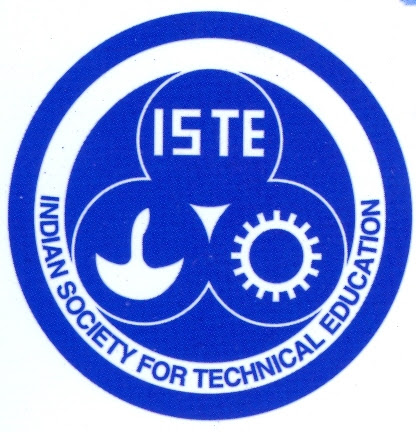- About
- Vision-Mission
- Laboratories
- Memberships
- Value Added Courses
- PEO/PSO/PO
- Curriculum & Syllabus
- Career Opportunities
- Faculty
- MOUs
- Certificate Courses
- Internships
- FAQ
Duration of Program : 4 Years (8 Semesters)
Seats: 60
Biomedical Engineering is the application of the principles and problem-solving techniques of engineering to biology and medicine.
Biomedical Engineering is evident throughout healthcare, from diagnosis and analysis to treatment and recovery and has entered the public conscience though the proliferation of implantable medical devices, such as pacemakers and artificial hips, to more futuristic technologies such as stem cell engineering and the 3-D printing of biological organs. Biomedical Engineers differ from other engineering disciplines that have an influence on human health in that biomedical engineers use and apply an intimate knowledge of modern biological principles in their Engineering design process. The study of biomedical engineering involves a broad array of diagnostic and therapeutic applications. This branch of engineering and science is a fascinating multidisciplinary area of study that entails the application of engineering techniques in order to assist practitioners like doctors and physicians in their healthcare practices. Study of this branch also helps them in the rehabilitation of disabled patients.
Vision
To develop into a Centre of Excellence in Biomedical Engineering, providing quality education, with orientation towards research and innovative development of health care products that will significantly enhance the quality of life.
Mission
– To educate students to understand the human body as an integrated system through quantitative engineering analysis and to use that understanding to design better health care devices and diagnostics.
– To impart in the students the skill-sets needed by the industry to become the best Biomedical Engineers.
– To endorse research to address grand challenges in biomedical engineering in a manner that supports education, employment and entrepreneurship for the benefit of the community.
– To enable students to be sensitive to the ethical issues pertinent to the Biomedical Engineering profession.
SEMESTER | SUB.CODE | LABORATORY NAME |
II | BM8211 | Bio Chemistry Laboratory |
III | BM8311 | Pathology and Microbiology Laboratory |
III | BM8312 | Devices and Circuits Laboratory |
III | BM8313 | Human Physiology Laboratory |
IV | BM8411 | Integrated Circuits Laboratory |
V | BM8511 | Biomedical Instrumentation Laboratory |
VI | BM8611 | Diagnostic and Therapeutic Equipment Laboratory |
VII | MD8751 | Hospital Training |
VIII | BM8811 | PROJECT WORK |
| Institution of Electronics and Telecommunication Engineers |  |
| Institution of Engineers, India |  |
| Indian Society of Technical Education |  |
SPECIALIZATION | SEMESTER | SUB.CODE | PROFESSIONAL ELECTIVES |
Recent Trends in BME | V | BM8071 | Bio MEMS |
V | BM8072 | Bio Materials | |
V | BM8001 | Medical Optics | |
IOT | VII | CS8081 | Internet Of Things |
VR & AR IN BME | VIII | BM8079 | Virtual Reality and Augmented Reality |
BME Role in Health Care | VI | BM8074 | Biosignal Processing |
VI | BM8002 | Artificial organs and Implants | |
VI | MD8071 | Telehealth Technology | |
VI | BM8003 | Biofluids and Dynamics | |
VII | MD8752 | Physiological Modeling | |
VIII | BM8004 | Robotics In Medicine | |
VIII | BM8005 | Neural Engineering |
PROGRAM EDUCATIONAL OBJECTIVES (PEOs)
- To enable the graduates to demonstrate their skills in solving challenges in their chosen field through the core foundation and knowledge acquired in engineering and biology.
- To enable the graduates to exhibit leadership, make decisions with societal and ethical responsibilities, function and communicate effectively in multidisciplinary settings.
- To ensure that graduates will recognize the need for sustaining and expanding their technical competence and engage in learning opportunities throughout their careers.
PROGRAM OUTCOMES (POs)
- Engineering knowledge: Apply the knowledge of mathematics, science, engineering fundamentals, and an engineering specialization to the solution of complex engineering problem
- Problem analysis: Identify, formulate, review research literature, and analyze complex engineering problems reaching substantiated conclusions using first principles of mathematics, natural sciences, and engineering science
- Design/development of solutions: Design solutions for complex engineering problems and design system components or processes that meet the specified needs with appropriate consideration for the public health and safety, and the cultural, societal, and environmental consideration
- Conduct investigations of complex problems: Use research-based knowledge and research methods including design of experiments, analysis and interpretation of data, and synthesis of the information to provide valid conclusion
- Modern tool usage: Create, select, and apply appropriate techniques, resources, and modern engineering and IT tools including prediction and modeling to complex engineering activities with an understanding of the limitation
- The engineer and society: Apply reasoning informed by the contextual knowledge to assess societal, health, safety, legal and cultural issues and the consequent responsibilities relevant to the professional engineering practice.
- Environment and sustainability: Understand the impact of the professional engineering solutions in societal and environmental contexts, and demonstrate the knowledge of, and need for sustainable development.
- Ethics: Apply ethical principles and commit to professional ethics and responsibilities and norms of the engineering practice.
- Individual and team work: Function effectively as an individual, and as a member or leader in diverse teams, and in multidisciplinary setting
- Communication: Communicate effectively on complex engineering activities with the engineering community and with society at large, such as, being able to comprehend and write effective reports and design documentation, make effective presentations, and give and receive clear instruction
- Project management and finance: Demonstrate knowledge and understanding of the engineering and management principles and apply these to one’s own work, as a member and leader in a team, to manage projects and in multidisciplinary environment.
- Life–long learning: Recognize the need for, and have the preparation and ability to engage in independent and life-long learning in the broadest context of technological change.
PROGRAM SPECIFIC OBJECTIVES (PSOs)
- To design and develop diagnostic and therapeutic devices that reduces physician burnout and enhance the quality of life for the end user by applying fundamentals of Biomedical Engineering.
- To apply software skills in developing algorithms for solving healthcare related problems in various fields of Medical sector.
- To adapt to emerging information and communication technologies (ICT) to innovate ideas and solutions for current societal and scientific issues thereby developing indigenous medical instruments that are on par with the existing technology
Regulations 2022 – View/Download
Regulations 2021 – View/Download
Regulations 2017 – View/Download
Biomedical Engineering is an interdisciplinary field that applies the principles of engineering to biology and medicine. The curriculum includes:
– Biological Sciences: Anatomy, physiology, and biochemistry.
– Engineering Principles: Mechanics, electronics, and computer science.
– Biomedical Applications: Medical imaging, biomaterials, and bioinformatics.
– Medical Devices: Design and development of devices such as pacemakers and prosthetics.
– Innovative Technologies: Stem cell engineering and 3D printing of biological organs
The program is designed to equip students with the knowledge and skills needed to solve complex medical problems through technological innovations.
Graduates of the B.E. Biomedical Engineering program can pursue various career paths, including:
– Biomedical Equipment Designer: Designing and developing medical devices.
– Biomedical Technician: Maintaining and repairing medical equipment.
– Medical Software Engineer: Developing software for medical applications.
– Medical Coding: Coding and processing medical information.
– Research and Development: Innovating new technologies for healthcare.
List of Memorandum of Understanding (MoU) between Department of ECE and Industries
S.No.
| Date of MoU signed | Name of the Industry
| Domain Area
| Duration
| List the Actual Activities Under Each MOU and Web-Links Year-Wise
| Relevance’s to POs, PSOs |
1 | 28-12-2021
| IT Expert Training, Chennai
| IOT, Embedded Systems, Machine Learning
| 5 years | Industrial visits, Research & Development, Guest Lectures and FDP
| PO1, PO2, PO3, PO4, PO5, PO11 & PSO1, PSO2 |
2 | 14-02-2023
| VLSI Mentors, Bangalore
| VLSI Physical design
| 3 years | Industrial visits, Research & Development, Guest Lectures and FDP | PO1, PO2, PO3, PO4, PO5, PO11 & PSO1, PSO2 |
3 | 15-03-2024
| Chipware Technologies, Bangalore
| VLSI Design and Manufacturing Activities
| 3 years | Industrial visits, Research & Development, Guest Lectures and FDP | PO1, PO2, PO3, PO4, PO5, PO11 & PSO1, PSO2 |
4 | 20-03-2022
| Srivari Enterprises, Chennai | Assemblies for defense, automotive & non-automotive applications.
| 3 years | Industrial visits, Research & Development, Guest Lectures and FDP | PO1, PO2, PO3, PO4, PO5, PO11 & PSO1, PSO2 |
5 | 15-07-2023
| SESBL, Chennai
| Smart Sensors Technologies
| 3 years | Industrial visits, Research & Development, Guest Lectures and FDP | PO1, PO2, PO3, PO4, PO5, PO11 & PSO1, PSO2 |
6 | 21-09-2023
| V Formation, Madurai | Manufacturing Production systems
| 3 years | Industrial visits, Research & Development, Guest Lectures and FDP | PO1, PO2, PO3, PO4, PO5, PO11 & PSO1, PSO2 |
7 | 10-06-2024 | SCR Soft Technologies Pvt Ltd, Chennai | Industry 4.0, IoT Services, Engineering services, IT Services | 5 years | Industrial visits, Research & Development, Guest Lectures and FDP | PO1, PO2, PO3, PO4, PO5, PO11 & PSO1, PSO2 |
8 | 22-01-2025 | Active Infratel Private Ltd, Gujarat | Telecommunications, BTS, MW, GSM trends | 3 years | Industrial visits, Research & Development, Guest Lectures and FDP | PO1, PO2, PO3, PO4, PO5, PO11 & PSO1, PSO2 |
This course was started in 2020-2021 AY and students are currently pursuing their 2nd year. Relevant content will be added soon.
This course was started in 2020-2021 AY and students are currently pursuing their 2nd year. Relevant content will be added soon.
Biomedical Engineering is the application of engineering principles to biology and medicine to create technologies and devices that improve healthcare.
Career paths include: Biomedical Equipment Designer, Biomedical Technician, Medical Software Engineer, Medical Coding Specialist, Research and Development Engineer.
The program duration is 4 years, divided into 8 semesters.
The program has a total of 60 seats.
Skills needed include: Knowledge of biology and engineering principles, Problem-solving and analytical skills, Proficiency in computer programming and software development, Understanding of medical device design and development and Ability to work in interdisciplinary teams.

